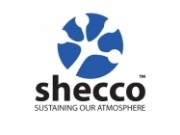We are happy to announce the first round of case studies from Chemical Grouting, Danfoss, Embraco, Food Techno Engineering, Mayekawa and Nihon Netsugen Systems to be presented at ATMOsphere Japan 2018.

The ATMOsphere Review Panel is pleased to announce the first round of case study selections for ATMOsphere Japan 2018 taking place on 13 February in Tokyo.
Chemical Grouting, Danfoss, Embraco, Food Techno Engineering, Mayekawa and Nihon Netsugen Systems will discuss their innovative natural refrigerant-based technologies at the conference.
The presentations are:
Chemical Grouting: Ground freezing, tunnel construction, NH3/CO2 system by Yuta Shioya
This case study will present the benefits seen from using an NH3/CO2 system for the first time for ground freezing during a tunnel construction project in Japan in January 2017. The NH3/CO2 system reduced power consumption by 50% during construction, simplified installation work, improved safety, and reduced the overall construction period by 40%. The case study will also look forward to the Olympic Games in Tokyo in 2020, where several large-scale railway and highway projects are underway. Due to this, the company expects the number of ground freezing projects using NH3/CO2 systems to significantly increase.
Danfoss: CO2 transcritical system using multi ejector
This case study will present the benefits of Danfoss' Multi Ejector solution when used with CO2 systems. The solution helps CO2 refrigeration systems outperform traditional HFC systems in terms of energy efficiency in all climate zones. Potential energy savings are up to 18% annually compared with conventional CO2 booster systems.
Embraco: Comparative analysis of a semi-hermetic system and Plug n' Play system by Marek Zgliczynski
This case study is a comparative analysis conducted by Embraco of a supermarket that uses a semi-hermetic system with HCFCs and a new Plug n' Play self-contained system using hydrocarbons. The case study will show the advantages of Embraco's solution, such as efficiency, environmental impact and customer perception, resulting in 70% faster installation, lower maintenance costs, 32% savings in energy consumption and an increase of 25% on the exhibition area.
Food Techno Engineering: Water-cooled CO2 booster system and its energy performance analysis by Satoshi Niwa
This case study covers Food Techno Engineering’s testing of operational performance for a water-cooled CO2 booster system with 2-stage compression, using Bitzer compressors. The system includes heat recovery for hot water heating through heat exchangers. Testing was conducted at the company's newly established CO2 research facility named the Food Techno Academy. The company found the system to have an equivalent performance to conventional R404A systems as well as the air-cooled CO2 refrigeration systems already commonly in use in Japan. The heating capacity of the hot water heat exchanger is 90% of the cooling capacity. Additionally, the system is expected to be further improved by redesigning the flash gas heat exchanger, improving COP by 13% compared to R404A systems.
Mayekawa: CO2 heat pump for snow melting by Kazutoshi Itoh
This case study will detail several uses of Mayekawa's CO2 heat pump for snow melting. Mayekawa has developed the world's first HFC-free air source snow melting heat pump using CO2. By optimally designing the dedicated compressor and the air heat exchanger, Mayekawa has found that performance was equal to or higher than HFC based systems.
Nihon Netsugen Systems: CO2 transcritical systems in industrial refrigeration applications in Japan by Katsuhiko Harada
This case study will present technical data on new CO2 references for cold storage facilities and freezers for the food industry. The presentation will cover performance analysis of the company’s existing installations using transcritical CO2 condensing units in different applications.
